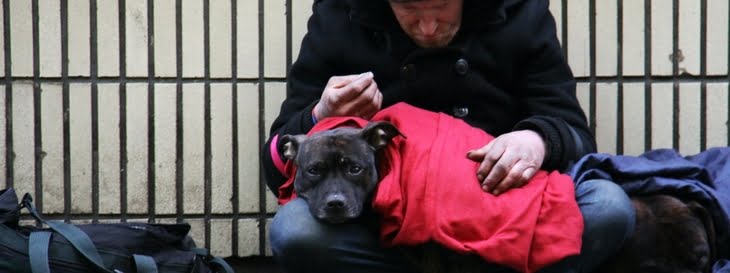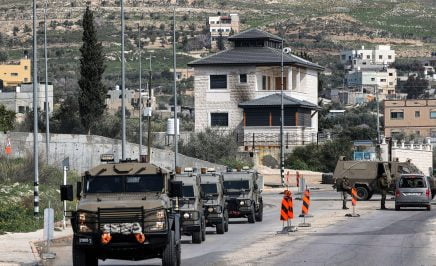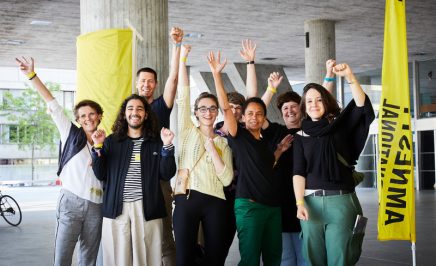In recent years, especially following the Covid-19 pandemic, the cost of living in Australia has skyrocketed. That’s true for most common expenses, like food and utilities. And it’s especially true of housing. The number of people classified as homeless has increased every year since 2006, according to the Australian Bureau of Statistics (ABS).
Some folks will be surprised that housing could become such an issue in Australia, a wealthy country known for its high wages and social safety nets. Aren’t there safeguards against this kind of thing? And as we’ll explain in this post, many of the typical assumptions about the right to housing no longer apply in today’s Australia.
What’s causing Australia’s housing crisis?
There are some well-known risk factors for homelessness: family or domestic violence; poor physical or mental health; disability, trauma or addictions. All these reduce people’s ability to find employment and earn a sufficient, regular income.
But the housing crisis isn’t just affecting those populations that we typically think of as ‘vulnerable’. For this generation, stable housing is assured only for those in the highest income brackets or those with inherited wealth.
Put simply, Australian wages aren’t keeping up with the cost of living. The capital needed to buy a home has ballooned spectacularly in the last few decades, placing home-ownership beyond the reach of younger generations. This has pushed many people in their late twenties, thirties and forties into shared or rental accommodation. That, in turn, has led to fewer available rental properties and soaring rental prices.
As a result, Australia’s now in the midst of a serious rental crisis. This, along with the rising cost of basic necessities, has made securing decent, affordable accommodation difficult.
Housing used to create profit
A big problem is the use of housing as a means to create profits instead of protecting it as a basic need and a human right for all. Older generations, who bought their first homes in the 1970s and ‘80s, have been able to sell or rent out those homes at a massive profit. A well-paid, full-time young person would still struggle to buy their first home today, as they may not earn enough to cover a deposit and secure a home loan approval.
Who are the most impacted?
- Vulnerable groups including refugees, migrants, children, people with disabilities, elderly people, and Indigenous people are overrepresented,
- A few numbers from a 2021 study conducted by the ABS:
- 14.4% of homeless people were children under 12,
- 15.8% of homeless people were over the age of 55.
- 1 out of 5 were Aboriginal and Torres Strait Islander people
- Women are the majority of newly homeless according to ABS census data released in 2023.
How does homelessness affect people?
Homeless people are severely disadvantaged, both economically and socially. The exposure to violence and victimisation often results in long term unemployment, isolation and serious health issues.
People experiencing homelessness are likely to suffer from bad nutrition, poor hygiene, injuries, mental illness and substance use disorders. Even short term homelessness has a serious impact on health. The constant stress of homelessness causes high levels of cortisol and high blood pressure, as well as a weakened immune system.
People facing homelessness also face barriers to accessing healthcare. That means conditions that could be treated or cured become much more serious.
Do people die from homelessness?
People do die from homelessness, but there’s not much reliable data about this. No Australian state government produces rigorous data on the numbers or circumstances of homelessness-related deaths. The only numbers we have from the government are estimates released every five years through the national census. This shows a shocking indifference from our government toward its most vulnerable citizens.
According to some estimates, homeless people die around 30 years earlier than the general population. That’s the biggest gap of any other disadvantaged group in Australia.

Is there a right to housing in Australia?
In Australia, there’s no specific legal right to housing enshrined in the Constitution or federal legislation. State Human Rights Acts in Queensland, Victoria, and the Australian Capital Territory don’t explicitly guarantee the right to adequate housing, but each jurisdiction has Housing Acts that regulate the management of social housing. Additionally, the Commonwealth Housing Act establishes the overarching framework for housing administration across all states and territories in Australia.
People have used state human rights acts to secure their right to housing. In Queensland, a single mother who had experienced domestic violence successfully challenged her eviction using the Queensland Human Rights Act. The woman’s ex-partner had refused to leave their rental, leading to an eviction notice. She drafted a letter of complaint with the help of Tenants Queensland, which made the landlord withdraw the eviction notice.
Australia does provide various forms of housing assistance and support programs to help people access affordable housing. These include things like public housing and rental assistance. But the programs on offer don’t come close to meeting the need. And in spite of these programs, too many people are still suffering from homelessness. In these cases, the state is failing in its obligation under international law to protect the right to adequate housing.
The right to housing under international law
The right to housing is enshrined in international law. It’s set in the International Covenant on Economic, Social and Cultural Rights (ICESCR), a treaty adopted by the United Nations General Assembly in 1966. Article 11 imposes obligations on state parties to ensure the realisation of the right to adequate housing.
‘Adequate housing’ means more than just a right to shelter. It’s the right to access decent housing, which is defined by several factors:
- Legal security of tenure
- Availability of services, materials, facilities and infrastructure,
- Affordability and accessibility
- Habitability
- Location and cultural adequacy.
As a party to this treaty, Australia has an obligation to ensure the affordability and accessibility of housing, including focusing on protecting the human rights of our most vulnerable.
Is the right to housing a human right?
The right to adequate housing is one of the most basic human rights. In addition, homelessness exposes people to violations of a wide range of other human rights. These include the right to an adequate standard of living, the right to education, the right to liberty and security of the person, the right to privacy, the right to social security, the right to freedom from discrimination, the right to vote and many more.
These rights are protected by several international human rights treaties, including the International Covenant on Civil and Political Rights (ICCPR), the International Covenant on Economic, Social and Cultural Rights (ICESCR), and the Convention on the Rights of the Child (CRC).
How is housing protected in other parts of the world?
Both France and Scotland have established a legal entitlement to housing. In Britain, local authorities bear the responsibility of preventing evictions unless alternative accommodation has been secured. Finland, in compliance with its constitution, mandates public authorities to actively advocate for housing rights, resulting in a remarkable decline in homelessness to the extent that rough sleepers are nearly non-existent, making Finland the sole European country to achieve this feat.
England, Scotland, and Wales, along with certain regions in Canada, systematically monitor the annual count and reasons behind homelessness-related deaths. Recognizing the extent and characteristics of this issue is the initial stride toward formulating effective solutions.
How could a federal Human Rights Act help address the housing crisis?
Enacting a federal Human Rights Act could establish an obligation for public authorities to adhere to the human rights expressed in the legislation, including the right to adequate housing, and to take human rights into consideration when making decisions.
It’s crucial that a federal Human Rights Act protects the human-rights commitments Australia has made under international treaties. Incorporating the right to adequate housing is crucial as it directly impacts people’s fundamental well-being and quality of life.
What could we do to address the housing crisis?
- Enable decent social and affordable housing
- Provide support to people facing homelessness or are at risk of homelessness
- Provide emergency housing
- Gather accurate data on homelessness to know the number of people affected by the problem and identify the reasons of homelessness at a national scale.
- Count and investigate homelessness deaths
- Fund specialised care for homeless people to avoid preventable deaths
The Parliamentary Joint Committee on Human Rights Report
The government is currently conducting an inquiry into Australia’s human rights framework. This inquiry is crucial, because it’s considering whether the Parliament should legislate a Human Rights Act and protect our rights in law. A report with findings and recommendations is expected in March.
Amnesty recommends that the Federal Government develop a new National Human Rights Framework that prioritises protecting human rights in domestic law in a Human Rights Act.
Learn more about our submission and help us ensure that everyone’s rights are respected and protected.





